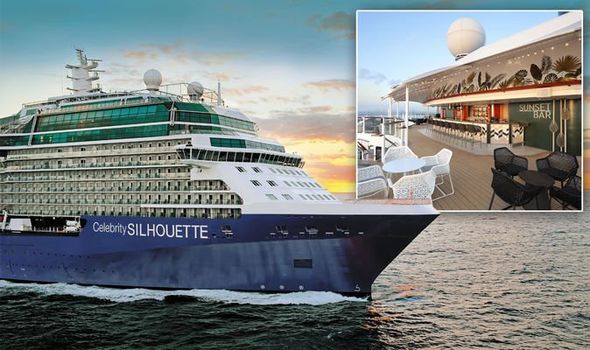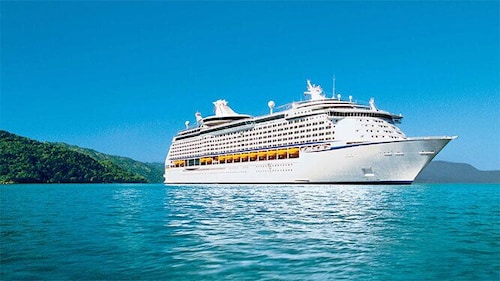
A cruise ship's medical center is purpose-built to provide health care for the onboard passengers and crew. This center usually features separate reception areas to accommodate passengers and crew as well as doctors' consultation rooms, dispensary and X-ray rooms and treatment rooms. These rooms are equipped for surgical instruments and sterile equipment. An inpatient area consists of one to three two-bed wards and a central nursing area.
Cruise ship medical staff
There is a wide range of medical staff onboard cruise ships. No matter what size the ship, medical staff are capable of performing a wide variety of tasks. A doctor is responsible for administering medications as well as coordinating logistics for evacuations and referrals. Medical staff members can also help with a wide variety of routine tasks, such as administering medication and managing preventative health programs for passengers and crew.
Most cruise lines have a medical facility located on the lower deck of the ship. There are nurses and doctors on call round the clock, as well as several beds for minor injuries and emergencies. Most ship nurses and doctors deal with minor injuries as well as motion sickness and respiratory problems. They can also coordinate with local services in some cases to ensure the best possible care. Apart from regular medical and nurse staff, all medical staff aboard cruise ships must have been exposed to COVID.

Medical treatment costs
While cruise ships are not floating hospitals, their onboard medical facilities are far more advanced than the average shore hospital. Infirmaries are equipped to treat minor injuries or illnesses, and can stabilize passengers until they can transfer to a local hospital. Basic care and emergency care are provided round-the-clock. Although the hospital's medical services are less extensive than those at a regular hospital, doctors and nurses can treat common ailments.
The majority of health insurance plans do NOT cover medical services aboard or in the United States. Hospitals on cruise ships can run several thousand dollars. Thankfully, Medicare is flexible and will cover some of the cost, as long as the treatment is deemed necessary. It also covers ambulance costs if the ship is within six hours of a U.S. port. It might also include services offered by connected providers as well as ambulance costs, if the hospital is closer than the resident's house.
The location of the medical center
Cruise ships aren't considered floating hospitals but do provide medical facilities with trained staff for minor ailments. There are usually several beds, stretchers and backboards available for spinal injuries. Cruise ships also have emergency rooms and basic care for those afflicted with seasickness or sea/motion sickness. Medical personnel is available for you 24 hours per day, 7 days a săptămână.
An emergency situation on a cruise vessel can prove dangerous. If this happens, the medical team should be available to assist the patient. The medical team is trained to handle minor illnesses and severe emergencies. For severe emergencies, however, evacuation to a nearby port may be necessary. In these situations, the management of the ship may request a helicopter or assistance from nearby vessels. Call 7-3000 if you need immediate help if the evacuation is not feasible.

Qualifications of medical personnel
An emergency medical team on a cruise ship should have high levels of education and experience. To attend to any emergency, all doctors must be board certified. Also, nurses must have at least three years' experience as post-graduates. Staff must also have advanced life support certifications and be flu- and COVID infected. All medical personnel on cruise ships must have the ability to use computer software.
The nurses who work on a cruise ship are required to have the necessary training and qualifications. Although a bachelor's degree is not required, it is highly recommended. An RN license is required. Also, advanced cardiac life-support certifications are necessary. Additionally, cruise ship nurses must have at least three years of experience in emergency and acute care, which usually refers to a hospital environment.
FAQ
Where should I go on my cruise?
You need to decide where you want go, if your goal is to visit different ports. This information will help you narrow your search. For example, if history is your passion, you may choose to cruise to destinations such as Alaska, Bermuda or Canada. If you are more into beaches and water sports, you might want an itinerary that includes destinations such as Jamaica, Aruba, Bahamas, Costa Rica, Panama, Hawaii, Tahiti, etc.
How does cruising work
A deposit is required to reserve a cabin for a cruise. It can range from $50-$100. Your balance is due 30 days before departure. Check into your cabin when you arrive at the port. You may then participate in one or more of the many activities onboard.
What type of cabin do I need?
It is important to consider the space you require when you choose a cabin. Do you like sharing a bathroom or would you prefer to have your own? Or would you prefer to use your own bathroom? Is noise important to you? Is it important to you that you spend more time in the stateroom or the dining area? Consider whether you would prefer an interior or balcony view. Balconies give you a little more space, but they can sometimes be noisy. Interior views are usually quieter than balconies.
What is a cruise ship vacation?
The best way to describe a cruise ship vacation is as an all-inclusive experience where you are provided for at all times. You can access everything from restaurants, spas, entertainment, activities, excursions, etc. It's more than just a place where you can sleep and eat. All you have to bring is your senses of adventure.
Is a cruise a good holiday?
The best vacations are when you don't have to think about anything but relaxing and enjoying yourself. A cruise is just what the doctor ordered!
Statistics
- In addition, 10 to 15 percent gratuity is typically added to bar bills — for alcohol and soft drinks — and gratuities are applied to spa treatments. (cruiseline.com)
- If you're traveling alone, you may also need to factor in a single supplement, adding up to as much as 100% of the cruise fare. (travel.usnews.com)
- The line estimates savings of 50% when you purchase this bundle. (travel.usnews.com)
- You can save 15% off the total price if you book in advance of your trip. (travel.usnews.com)
External Links
How To
How to avoid seasickness while on cruise
Wearing a hat on a cruise will help you avoid getting seasick. A wide-brimmed head hat can prevent motion sickness. It keeps the head still and helps keep it from moving.
Also, a hat helps keep water off your face, which reduces the humidity. This makes it easier to breathe for those who experience dizziness when inhaled moist air.
Another tip is that you should drink lots of fluids. Avoid alcohol or caffeine. These drinks dehydrate the body causing more fluid to move around in the stomach. The amount of salt in the bloodstream can be reduced by drinking enough liquids. Salt causes the body and kidneys to retain water. This can lead to nausea.
If you do feel nauseous, try eating something salty. Salty foods make the stomach produce more hydrochloric Acid, which is helpful in breaking down food particles.
These tips may not work. There are other medications that can be used to treat seasickness. Side effects of some medications include dry mouth, dry eyes, constipation and blurred vision.